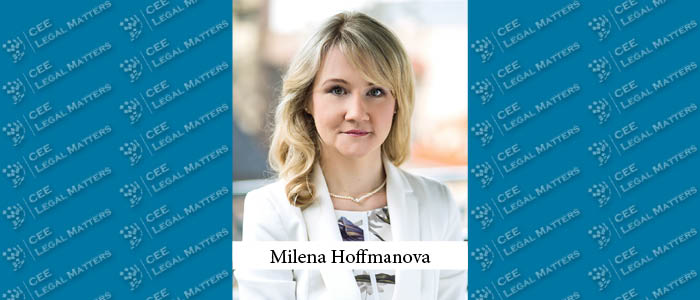Emphasizing the urgency of healthcare reforms in the Czech Republic – given acute supply issues and the need to address systemic challenges effectively – Baker McKenzie Partner Milena Hoffmanova underscores the importance of collaborative efforts between stakeholders to ensure sustainable and equitable healthcare delivery in the country.
“The Pharma industry in the Czech Republic is currently implementing one of the biggest changes in the regulation on the distribution of pharmaceuticals in recent years,” Hoffmanova begins. “An amendment entered into effect at the beginning of this year, with the rest to come into play later, bringing legislative changes meant to impact the availability of medicinal products in the country. Due to the Czech Republic’s pricing policies and import-export dynamics, we’ve faced numerous challenges posed by shortages of medicines – a problem and a topic for both the public, pharmacies and pharma businesses, and authorities.”
Hoffmanova explains that the key amendments introduced in January aim to address shortages and improve availability, and include extended supply obligations for marketing authorization holders and stockpiling requirements for distributors. She elaborates: “The amendment brings several new obligations for marketing authorization holders as well as distributors. It mandates that marketing authorization holders must supply medicinal products for an additional one to two months, even after the reported date of interruption or termination of supplies. Additionally, upon the decision of the Ministry of Health, distributors might be required to maintain stockpiles of medicines to ensure availability, a task made difficult by the existing shortages.”
Hoffmanova highlights the complexities of implementing these changes, particularly in cases of production shortages and “the ambiguous obligations regarding non-discrimination against pharmacies.” Despite efforts to enhance availability, she acknowledges the ongoing challenges and the limited leverage the Ministry of Health has in addressing systemic issues, and emphasizes the need for a balanced approach to pricing and supply chain management to mitigate shortages effectively.
For context, Hoffmanova also points out that similar issues are being faced by neighboring countries in Central and Eastern Europe, such as Hungary and Poland, which have implemented comparable legislation. On the whole, she says “the region’s collective response to pharmaceutical supply chain issues is characterized by stricter regulations and increased penalties.”
Shifting focus to the impact on local transactions and healthcare networks, Hoffmanova points to the influence of global pharmaceutical deals on local markets. She highlights “the continued success of pharmacy chains and growth of healthcare provider networks in the Czech Republic, driven by private investments.” However, she underscores that “the shortage of healthcare professionals in critical areas, like psychiatry, is posing challenges to that continued service expansion.”
Regarding patient care, Hoffmanova acknowledges the system’s overall effectiveness but raises concerns about its long-term stability and the affordability of new, expensive treatments. “If treatments that can cost millions of Czech crowns are covered and become more frequent, the system will face a shortfall. So, we’ll either have to allocate significantly more public funds to healthcare, introduce coverage limitations, or require patients to participate more significantly in the costs of their healthcare. However, she notes there is “political reluctance to increase the financial burden on patients, due to past failures and public resistance.”




